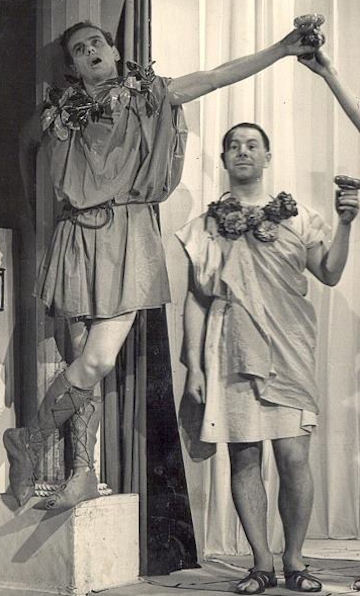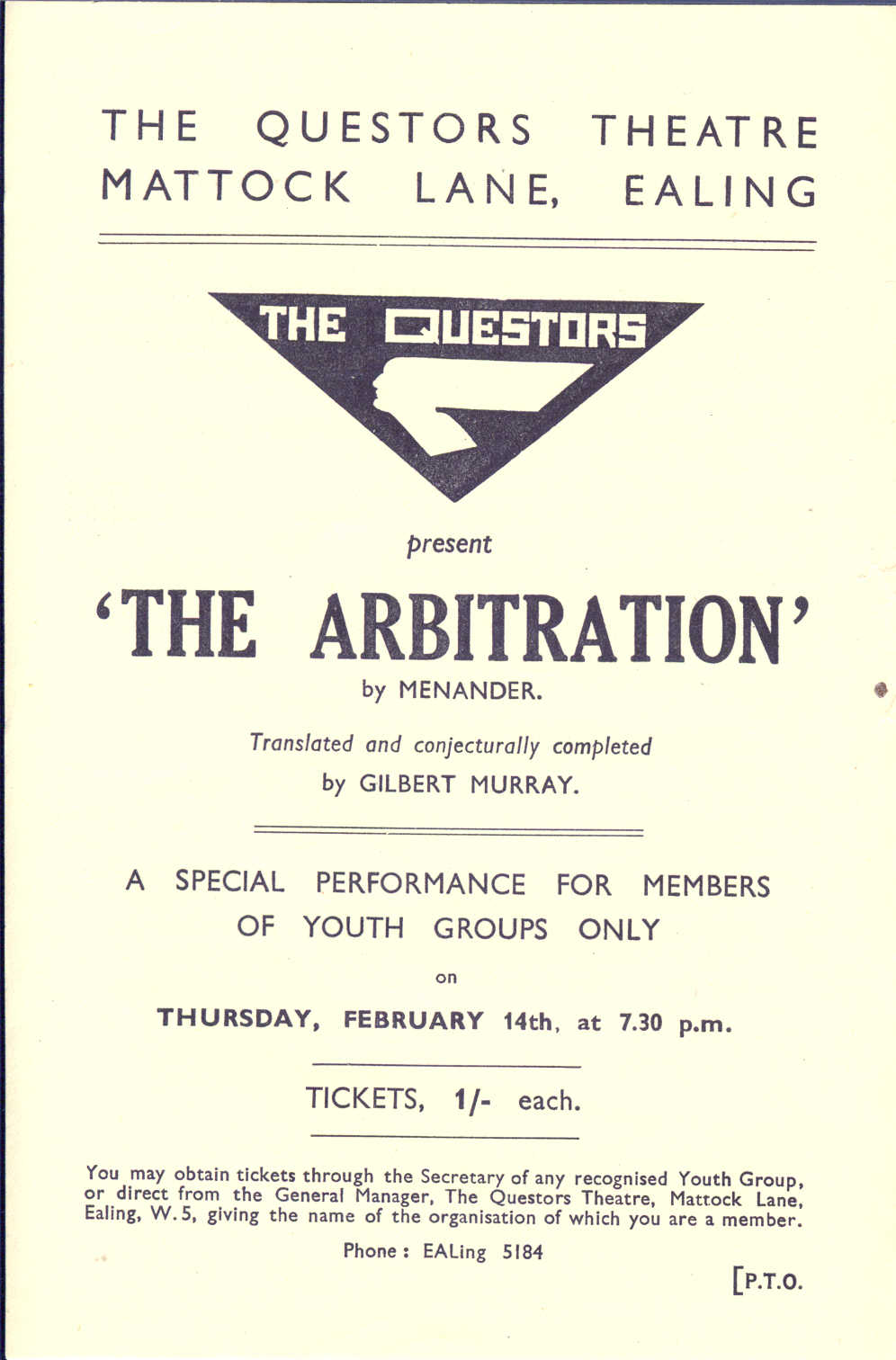THE ARBITRATION
by Menander
The Questors Theatre
February 1946
Directed by Barbara Hutchins
Designed by Ernest Ives
Lighting by Michael Kelly
Costumes by Marjorie Ives
Cast:
Anthony Allen, Maurice Ballinger, Isobel Benns, Peter Curtis, Alfred Emmet, Sheila Gosling, Lona Halkett, Mary Hills, Albert Hooper, Terence Kirk, John Maegregor, Jean Mcconnell, George Mooney, Joan Pyle, Denis Robinson, Francis W. Smith, Tom W. Franklin, Frank White, Francis Williams
Production Team:
Joyce Harland, Barbara Hutchins, Ernest Ives, Marjorie Ives, Michael Kelly, George mooney, Diana Rutland
|


|
|


